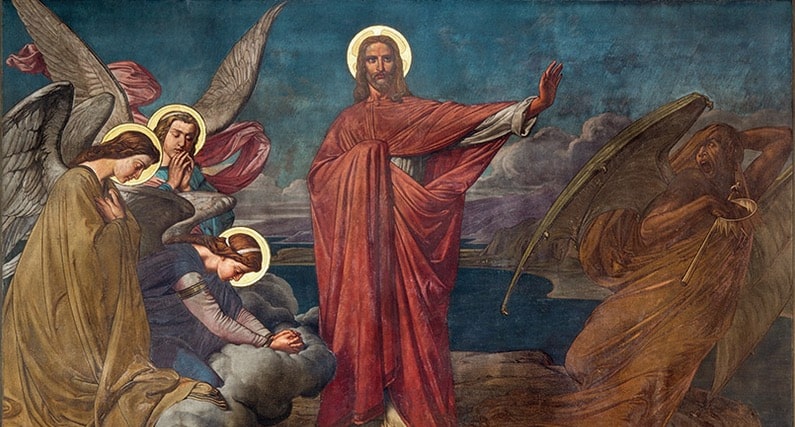
Of course, this is a naïve claim even outside the Scriptures. Human beings always worship something. If you reserve adoration of God to Sundays, you may find yourself adoring power, fame or money the rest of the week.
Israel’s worship of God was all-encompassing. It’s all-encompassing because everything that Israel received was a gift from God, meant to be offered back as a sacrifice of love.
The description of the offering of first fruits in Deuteronomy underlines the all-encompassing gratitude that should mark Israel’s worship. Israel received the Promised Land, flowing with milk and honey, from the God of Abraham, of Isaac and of Jacob. It is this God who rescued them from slavery, leading them out of Egypt.
Therefore, Israel is to bring the first fruits of the land to God. They are not to hold onto these fruits, storing up what is best for themselves. They are to offer these fruits to God, sharing a meal with the orphan and the widow.
Here, we have an act of worship that is to encompass every dimension of Israel’s behavior. What they have received from God is pure gift. And therefore, Israel is to offer in return its whole existence back to God.
| First Sunday of Lent – March 10, 2019 |
|---|
|
DT 26:4-10
PS 91:1-2, 10-11, 12-13, 14-15 ROM 10:8-13 LK 4:1-13 |
Jesus’ temptation in the desert is an extension of Israel’s act of worship to the entire human family. Jesus is led into the desert, the original trysting place between God and Israel.
There, he is tempted to seize control, to become “godlike.” The devil tempts him to satiate his hunger, to seize his rightful identity as king and to perform a marvelous deed on the parapet of the Temple so that all may behold his glory.
Jesus says “no” to each temptation. Each of his “nos” relates to the refusal of Jesus to seize power, to grasp control. He says “no” to bread, for only God’s word can feed. He says “no” to political power, for God alone is king. He says “no” to testing God, because no one is to test God.
In these temptations, Jesus shows us as created men and women how to offer our humanity back to God. He shows us what it means to be God. Remember, Jesus is fully human and fully divine. To be truly human isn’t a matter of power and prestige, fame or fortune.
To be God isn’t to adore our own power. It is to love, to enter into the fullness of the human condition.
The season of Lent, in this sense, is an opportunity for Christians to let the act of worship take over every dimension of our lives.
It is not enough to halfheartedly attend Sunday Mass — to worship God in our personal life but to live as normal men and women the rest of our days.
We are meant to give everything back to God. When we fast, our hunger becomes part of this offering. When we give alms, we show that nothing we have is our own. When we pray, we declare that all time is really God’s.
As it turns out, ethics are not separate from the act of worship. How we live — everything we do as Christians — is part of the act of worship.
It is acknowledging that God alone is God.
Happily, for our salvation, we are not.





